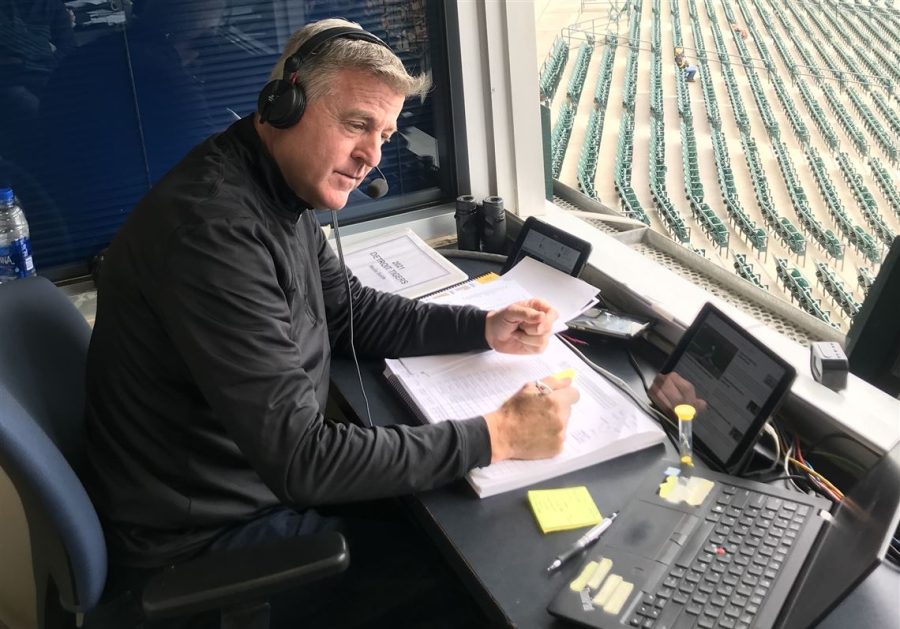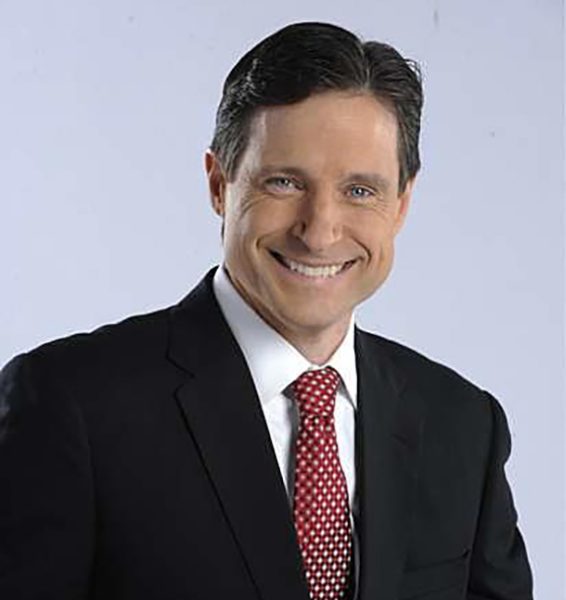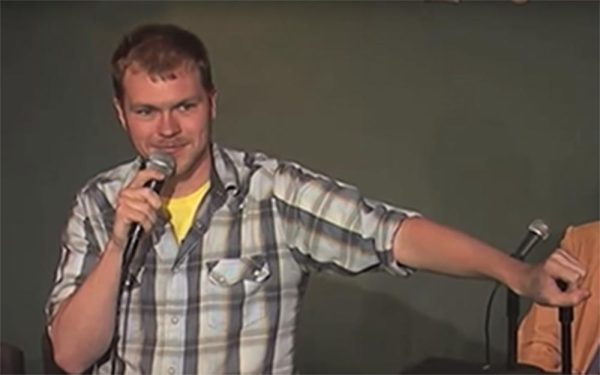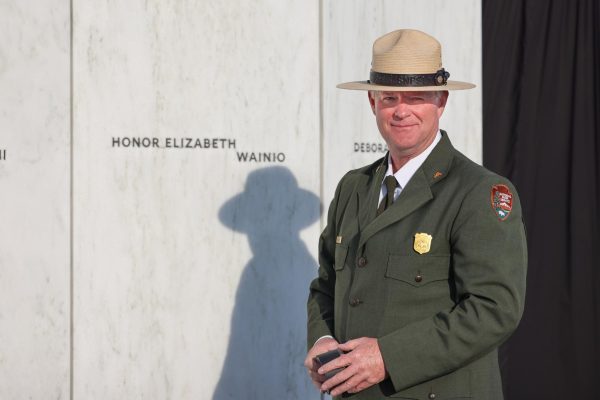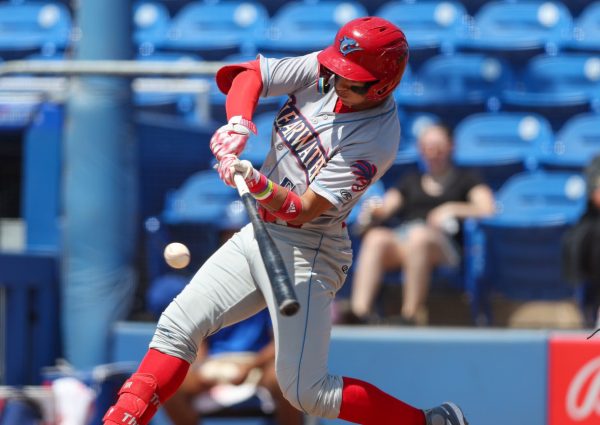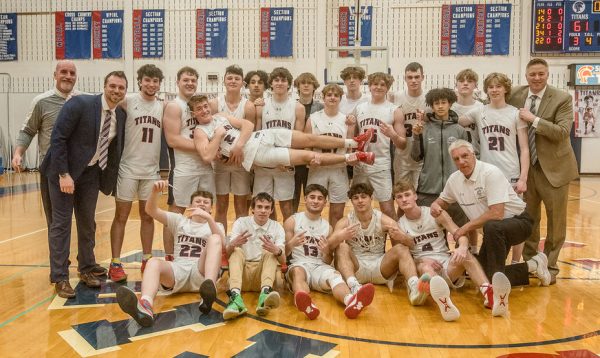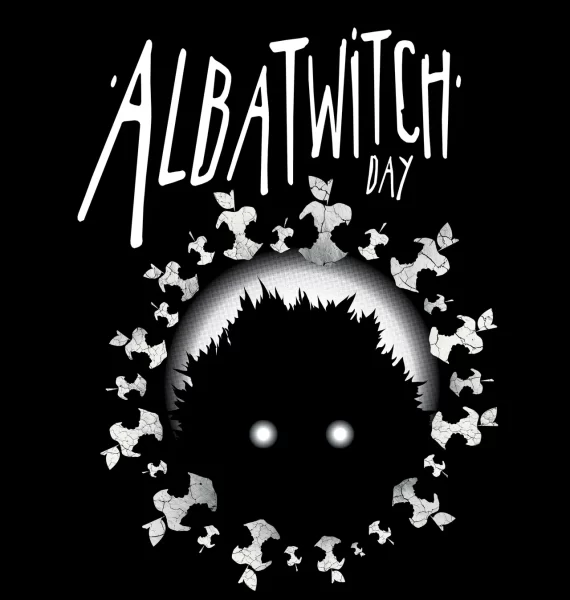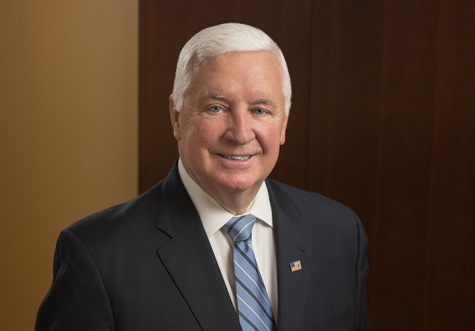Greg Brown living out his dream as Pirates play-by-play announcer
Matt Persak, Pittsburgh Post Gazette
Greg Brown preparing for a Pirates in the broadcast booth in Detroit
As Sid Bream slid across home plate, sending the Pirates home in Game 7 of the 1992 NLCS, in slid what has now been nearly 30 years of losing baseball in Pittsburgh. The Pirates had 20 losing seasons after that infamous game in 1992. Last season was the fifth year in the past six that the Pirates have finished the season with a losing record.
Yet, despite all the losses, the one win Pirates fans have been able to count on for almost three decades has been the voice of their franchise, Greg Brown.
Brown, set to begin his 28th year with Pittsburgh, has called the third-most Pirates broadcast games in club history and will be behind the mic once again for the upcoming 2022 season. Brown will tell you, though, just being able to broadcast for the Pittsburgh Pirates, the team of his childhood, is a dream he never thought could have come true.
Brown grew up in central Pennsylvania, and despite him now being most associated with baseball, it was football that was Brown’s first love.
If I could just someday work for the Pirates, somehow, someway…After high school, it became a real dream. I don’t know how realistic it was, but I thought that would be the ultimate.
— Greg Brown
“The earliest sports memory I have is I became a Chicago Bears fan when I was about eight years old,” Brown said. “I remember vividly watching one of those NFL Film videos of Gale Sayers. It was one of those things that was in slow-mo and they set it to music. I became transfixed watching this video of what I thought was poetry in motion. I fell in love with him and his story.”
Not long after, around the age of 10, Brown fell in love with the Pirates with help from his dad.
“My father would have business in Pittsburgh often,” Brown recalled. “I broke my elbow [falling] off my bicycle and was in traction for two weeks in the hospital. I was miserable. He promised me that if I listened to the doctors and nurses, he would take me to Pittsburgh with him on a trip and we’d see a baseball game. It was not long after Three Rivers Stadium opened that I went to my first game. I remember being in the upper deck with not very good seats. I remember just loving that experience, the atmosphere. I thought it was so cool to be at a major league game. That kind of set me on the path to want to go to more games. I went to as many as I could from that point forward.”
The future voice of the team was able to enjoyed some of his favorite players from Willie Stargell and Dave Parker to Omar Moreno and Kent Tekulve. He also began to realize who he enjoyed hearing call the games most, including the likes of Pirate announcers Milo Hamilton and Lanny Frattare, Harry Kalas in Philadelphia, Chuck Thompson in Baltimore, Jack Buck in St. Louis, and even NFL announcers Merrill Reese with the Eagles and Joe McConnell with the Bears.
Eventually, Brown began to impersonate his favorite broadcasters.
“When I was playing sports on the playground, not only was I playing but I was also announcing,” Brown said. “When [my friends] were playing against me, I would be announcing the game.”
When Brown realized he wasn’t going to be able to make it as an athlete, he shifted his focus to broadcasting, specifically for the Pirates. He enrolled at Point Park College, and set his sights on working for his favorite team.
“If I could just someday work for the Pirates, somehow, someway,” Brown said. “Truthfully, I would’ve been a peanut vendor. I would serve Coke. I never thought of myself as an announcer until I started working for the Pirates and got to know Lanny and Jim Rooker. After high school, it became a real dream. I don’t know how realistic it was, but I thought that would be the ultimate.”
Despite being with the Pirates in non-broadcasting roles for a decade, Brown still had to work his way up through the business to achieve his dream. In Pittsburgh, Brown did stats, promo work and voice-overs and even was the public address announcer at Three Rivers Stadium. He went on to do minor league baseball, hockey and basketball games, and also did sports talk radio and news talk radio. Ironically, it was a non-sports event that was one of the biggest moments of his young career.
“I was on the air when the United States invaded Kuwait under the first President Bush,” Brown said. “I just happened to have finished my sports talk shift when it happened. Our program director called me and said ‘We’re trying to get the news talk guy into the studio to go into full-blown coverage of the war. We want to stop talking sports right now. Can you handle it until he gets there?’ I said, ‘Absolutely’. I went on for a couple hours. It was very exhilarating and exciting for me.”
In the end, Brown believes it wasn’t the news talk that got him his job with the Pirates, but rather doing color commentary for the Buffalo Bills in the 1990s, a stretch that included the Bills going to four consecutive Super Bowls.

“The people in Pittsburgh and the Pirates organization knew me very well, but I don’t think they thought of me as a Major League announcer. I asked Mike Lange when the opportunity came up to do Bills football. I didn’t know what to do. He said, ‘You gotta take every opportunity you get.’ I did, and thank God I did because I think that put me on the map.”
While it put him on the map, his time covering the very successful Bills was rough for someone from central Pennsylvania.
“Here I was, this out-of-towner, moving from the baseball broadcast booth to the football booth of the beloved Buffalo Bills,” Brown remembered. “This no-name guy who’s all of a sudden thrown in as color announcer with no NFL experience. It was a lot to take on, and people ripped me pretty good. Thankfully the Bills were good enough that it didn’t matter as much, but I got fried pretty good in the media.
After one Bills exhibition game, a headline in the sports section of The Buffalo News newspaper was “Brown Gives TV Viewers No Reason To Tune in WGR”.
“The play-by-play announcer had been there forever and was an institution in Buffalo. He was very kind. He took me under his wing and he could see me kind of struggling the first couple of weeks. And he told me ‘Don’t watch the ball. I’m watching the ball. You look all around elsewhere.’ That was a huge help. I think that served me well, and I think it would serve other color analysts well.”
The criticism Brown took hit him hard, but allowed him to grow thicker skin and become less sensitive.
“Brown adds absolutely nothing to the broadcast. He has little insight,” read some of Alan Pergament’s lines. The Bills coaches, who weren’t fans of Pergament, and the owners of the radio station were very supportive of Brown, and helped him get through the criticism he was facing. Through it all, he learned the important lesson that if you want to be in the sports business, there are going to be many people that do not like you.
Brown pushed through and remained with the Bills, and after two years he applied for the Pirates job, but he was turned down. He was frustrated, but continued doing Bills games. In what turned out to be his last year in Buffalo, the Pirates job opened up at the end of October, and in that year’s NFL postseason, Brown got the call he had dreamed of his whole life.
“I heard rumblings because I had some buddies who knew people in the Pirate organization, and they were saying, ‘Man you got the upper hand. I think you’re gonna get the job,’” Brown said. “Late in the playoffs I got the phone call that I got the job with the Pirates. I was really, really lucky.”
If he wasn’t doing sports, Brown says he would have gotten into political talk, something that still interests him to this day.
“I’ve chatted with some of our radio network stations about maybe doing some news talk,” Brown accentuated. “I’m really a political junkie. I can’t say a lot of things that I want to (on Pirates games) or I’d be fired. I’m not looking to be a ‘shock jock’, but just go and talk politics.”
These days, Brown says it can be hard keeping politics out of baseball games, but it is something that he is intent on doing.
“I am there to broadcast a game,” Brown said. “I am not going to make a political statement. I’m not doing it. I’m gonna play it right down the middle. I’m gonna do the game and not make any social commentary. Thirty, 40, maybe 50 years ago, you could go on the air and say just about anything. I have realized no matter what you say you have to be so careful, even how you say it.”
Brown said one of the drawbacks to broadcasting now is that you have to be so careful with the things you say, and how announcers aren’t allowed to have the personalities that previous broadcasters did.
“I’m not as good as I could be, without a doubt,” Brown said regarding being more restricted in what he can or can’t say on the air. “It is not like it used to be. You just don’t have the freedom to be yourself. It’s a shame.”
Brown does try to be critical of the Pirates when he feels it is necessary, but knows that the team is his employer and he can’t go in too hard on the team. However, a criticism of Brown is that he doesn’t condemn the team enough, a complaint that bothers Brown.
When I was playing sports on the playground, not only was I playing but I was also announcing. When [my friends] were playing against me, I would be announcing the game.
— Greg Brown
“One of the criticisms I get is that maybe I’m too much of a Pirate guy, a so-called ‘homer’,” Brown said. “It’s absurd. One of the most beloved Pirates announcers in history, a Hall of Famer by the name of Bob Prince, was the biggest homer. I can’t even compare to what that guy was. Many years ago my boss said to me ‘Why do you find it necessary to point out things like, ‘The Pirates are gonna lose 100 games unless they win the next 19 of 20,’ I said, ‘Well, it’s true!’ He goes ‘Yeah, but you’re a Pirate announcer. Leave that to the critical talk show hosts to rip on the Pirates.’”
Another criticism that bothered Brown early in his Pirates broadcasting career was that Brown was going overboard with his calls. As Brown remembers thinking, though, that that type of announcing made Penguins broadcaster Mike Lange, a close friend of Brown, and Steelers broadcaster Myron Cope beloved in Pittsburgh.
Perhaps the most excited Brown got was in 2013, when the Pirates were arguably the best they have been during Brown’s tenure. That year, the Pirates finished with a 94-68 record, but fell to second in the division behind the 97-win St. Louis Cardinals, who would go on to the World Series. The Pirates got to play a wild card game at PNC Park, the first playoff appearance for the club in two decades.
“For years, I was saying what a great baseball town Pittsburgh was,” Brown said. “But we didn’t a good ballpark to play in. I said if you ever got those two things, look out. For about a dozen years after moving into PNC Park, we had a terrible baseball team. But in ‘13 it all came together.”
The wild card game was October 1, 2013 against the Cincinnati Reds. The gates were scheduled to open at 6:00 pm, with first pitch coming a little over two hours later. Brown, however, arrived much earlier.
“I decided I was going to soak it all in. I was going to go and just what the atmosphere was like. So I went up to the top level of PNC Park and looked down on Federal and General Robinson, and hours before the gates even opened, there was just a sea of humanity down there. It was remarkable,” Brown said. “It proved what I had been saying the whole time was right, and that I knew it was a great baseball town, and there before my very eyes I saw it. When the ballpark opened up its gates and I saw all the Jolly Roger flags and people going crazy and when Andrew McCutchen got introduced and he went out onto the foul line and he pointed to the crowd, I had tears in my eyes. It was just amazing.”
In the second inning, Marlon Byrd smacked a home run off of Reds ace Johnny Cueto, who then dropped the baseball on the mound after seemingly being shaken by the crowd mockingly chanting his name. Russell Martin hit a home run on the next pitch.
While that game, and specifically that incident, is at the top of many fans’ most memorable Pirates moments, that is not the case for Brown.
“My favorite call of all time since I’ve been with the Pirates was the last game ever at Three Rivers Stadium,” Brown said. “I had grown up as a Pirates fan. What are the chances that I would end up being a Pirate broadcaster? Well, another guy grew up a Pirates fan: John Wehner. The last game at Three Rivers Stadium was on October 1, 2000, and John Wehner, a part-time player who rarely started a game, was in the starting lineup. I don’t keep memorabilia, but that day I decided that I was going to keep a big score card and have each player from the starting lineup sign his position. Gene Lamont was the manager and I said [to Wehner] ‘How great is it that Geno put you in the starting lineup today?’ And he says ‘It’s unbelievable. Some of the guys are out here telling me to hit a homer. They think I’m going to hit a home run.’ I laughed because Wehner hit a total of four home runs in his whole career.
“Later in the ball game, the Pirates are down a couple of runs, with two outs against the Chicago Cubs. It’s a meaningless game, both teams are out of it. There are two men on base and two outs, bottom of the sixth I think it was, and I can’t describe the atmosphere to you. Just imagine longtime Pittsburgh and Pirates fans who grew up in that stadium. I grew up there and spent so many nights there. Wehner swings and the ball jumps off the bat and a line drive starts heading toward the left field wall. For me, this moment stood still. Sure enough, it leaves the ballpark and I just lost it. I went totally out of my mind. I must have said ‘I don’t believe it’ a thousand times because I, to this day, don’t believe it.”
Brown mentioned other moments that stand out to him, including a 2015 series against the Cardinals that gave Pittsburgh the division lead over St. Louis, a series that ended with an Andrew McCutchen walk-off HR on a nationally televised Sunday Night Baseball game.
He also remembers so not-so-great memories, including a time when he was confronted by Tony LaRussa over some comments Brown made regarding retaliatory pitches that LaRussa took exception to. The positive from that situation, Brown remembers, is that Brown actually won an Emmy Award because of his on-air response to the report of LaRussa confronting.
Brown is preparing for the upcoming 2022 season, and is looking forward to calling the action of a game that he says has been, and is, ever-evolving.
A broadcaster’s good game is 90% based on the game itself on the field, not what a broadcaster says. Even though many of us like to think of ourselves as guys or girls that can actually determine what a listener or viewer feels based on what we say, it’s always what [happens on] that field.
— Greg Brown
“Baseball evolves. When I hear myself complaining about the state of the game, you get your hand slapped on occasion,” Brown said. “They’ve done that to me when I get on my soapbox about the DH and say ‘Why do you keep ripping the game? We want people to love the game.’ And I say “That’s why I do rip it. I want them to love it more.’ But I have come to realize that what I want is them to love it like I love it, which is not fair. When Steve Blass complained about the state of the game, I’m sure that when Steve played, players like Pie Traynor from the ‘30s complained while watching Steve. It’s a constant evolving of the game, and it’s constantly changing. I know this, having watched old footage, old film, old video: there’s no way that the players of yesteryear, in general, are as good as the players that play today. [Today’s players] are stronger, they throw harder, they swing harder, they hit the ball harder.”
Brown then quoted Ty Cobb from a book “The Tumult and the Shouting” by Grantland Rice, where Cobb is said to have remarked “Well, the old game is gone … I guess more people would rather see Babe (Ruth) hit one over the fence than see me steal second.”
The game, Brown concludes, has been, currently is and always will be changing. Someone will always complain that the game isn’t what it used to be, and that’s a sure sign that baseball is evolving.
No matter how the game is being played, Brown realizes that his job is linked directly to the game on the field that he is broadcasting.
“A broadcaster’s good game is 90% based on the game itself on the field, not what a broadcaster says. Even though many of us like to think of ourselves as guys or girls that can actually determine what a listener or viewer feels based on what we say, it’s always what [happens on] that field,” he said.
In the end, throughout all of the evolving of the game and the losing the Pirates have endured, it is the love of the sport that allows Brown to realize he is the biggest winner of all.
“Each night is different. It doesn’t matter how good or bad you were as a broadcaster or player one night, because the very next night you have to clean yourself up and, as Clint Hurdle used to say, ‘Shower well’ and go out there and do the job again.”

Dominic DiTommaso is an award-winning sports writer and columnist for The Oracle at Shaler Area High School. He first started writing sports columns for...


